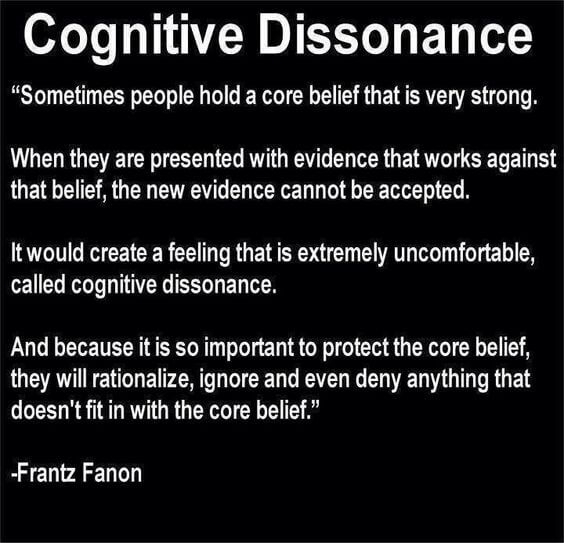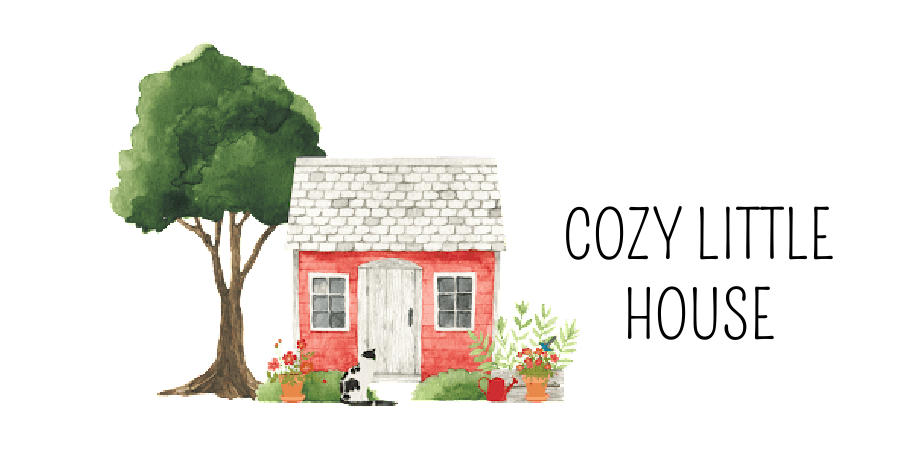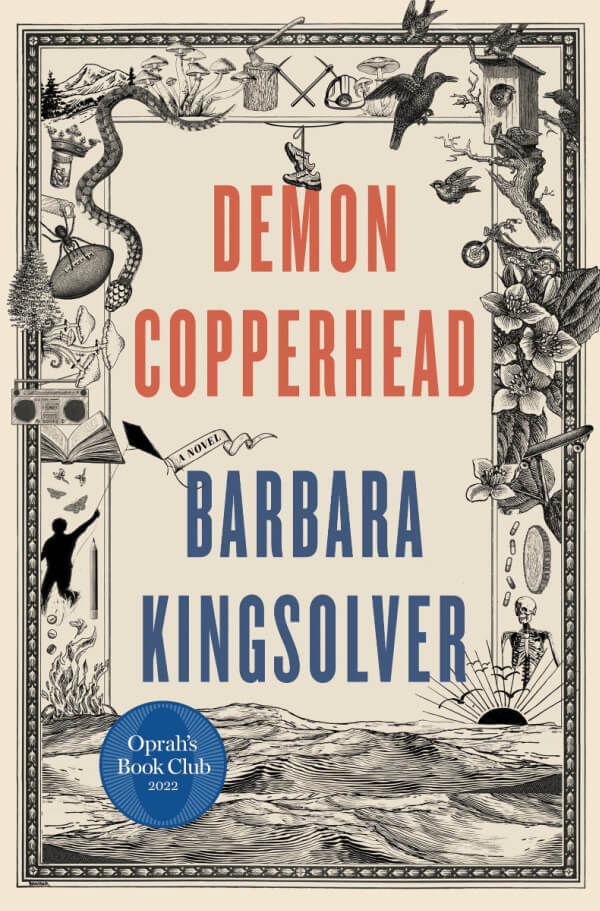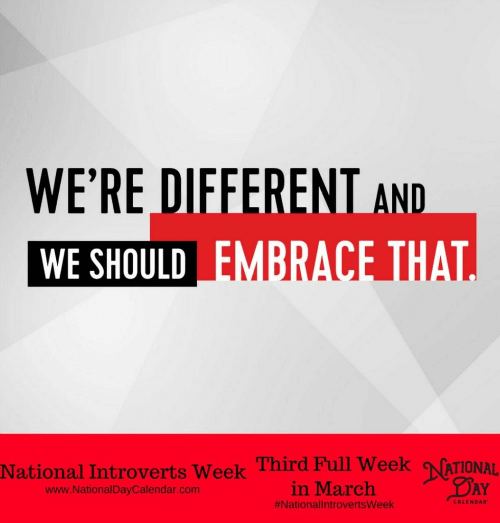What A Few Words Can Say
I’ve got a little survey I want to do today. It is regarding the first line of a book I’m reading about what a few words can say.
I had certain feelings and thoughts after reading that first sentence, and I want to see what feelings and thoughts you have about it as well.

I purchased it after reading just a few reviews, which is unlike me. I’d seen the cover of this book on other sites. But the book cover was kind of confusing and put me off somewhat. It has a snake on the front and I hate snakes. Even depictions of snakes.
So with this dichotomy, what made me go ahead and order this book when I usually read many reviews first before I commit?
What The First Sentence Says To You:
I’m interested in what the first sentence says to you in revealing what kind of story this could turn out to be.
Okay, here we go. The first sentence of “Demon Copperhead” is:
“First, I got myself born.”
Just five words. What do those words say to you in terms of the person saying them, their background, their age and so on?
Do you think the words come from a man, woman, or child? What region might they be from? What kind of life do they possibly lead?
I’m using this sentence to show how predisposed we are by a few simple words.
What do these 5 words tell you, if anything?
In terms of human behavior, are we predisposed to be motivated in different ways. Personality theory and research show that we are, in fact, motivated in different ways based on our personality traits.
Cognitive Dissonance:
Have you heard of cognitive dissonance?
Leon Festinger was a 20th century psychologist who developed the theories of cognitive dissonance and social comparison in the 1950s.
In 1955, Festinger left the University of Minnesota for Stanford University, where he and his students launched a series of laboratory experiments testing cognitive dissonance theory and extending it to a wide range of phenomena.
One of the best known was the forced-compliance paradigm, in which the subject performed a series of repetitive and boring menial tasks. And then the subject was asked to lie to the “next subject” and say that the tasks were interesting and enjoyable.
Some subjects were paid $1 for lying, while others were paid $20.

Based on dissonance theory, Festinger correctly predicted that the subjects who were paid $1 for lying later evaluated the tasks as more enjoyable than those who were paid $20.
The subjects who were paid $20 should not have experienced dissonance, because they were well rewarded and had ample justification for lying.
Whereas those who were paid $1 had little justification for lying and should have experienced cognitive dissonance.
To reduce the dissonance, they reevaluated the boring task as interesting and enjoyable.
The dictionary will tell you that dissonance means a tension or clash resulting from the combination of two disharmonious or unsuitable elements.
Cognitive dissonance is a mental conflict that occurs when your beliefs don’t line up with your actions. It can be something you don’t even notice because your brain sorts it out quickly.
An Example Of Cognitive Dissonance:
An article in Everyday Health uses this example: Say someone bumps into you on your way to work and you spill your coffee. You may initially feel pretty upset — ”just one more daily annoyance.”
But then you rationalize. You might say to yourself that it’s okay because there wasn’t much left. And, anyway, there’s coffee usually brewing in the office kitchen.
With this latter thought, you’ve reduced the dissonance almost immediately.

So back to the first sentence of the book I’m reading.
“First, I got myself born.”
What do those five words say to you? What are the first thoughts that enter your head?
There are no right or wrong answers here. I’ll go first.
“First, I was born,” tells me that this person is probably either young or not educated. In those few words, I feel as though this person hasn’t had an easy life thus far.
Okay, now it’s your turn. What do you first think when reading these 5 words?








‘First I got myseIf born’ I have to say that the wording of the first sentence immediately brought to mind a Victorian epitaph that I read about years ago …. so poignent with a tiny bit of sass and disappointment, maybe. It was the grave of a tiny baby in old London and on it was inscribed ‘If I was so quickly done for what on earth was I begun for’
So Brenda, I am wondering if the book is set in old England or in the American south, present time or the past. Look forward to hearing more.
To me it sounds like an older person starting to tell the story of their life and basically they have felt they’ve had no help with anything and have felt all alone, making their own way in life. But, I feel it is an odd sentence and does make me think, hummm.
I think it sounds like an older person from the South. Aside from that I cannot tell. I cannot wait to read the other comments. And I have this book on my list to read so I am anxious to see who you liked it.
I’ve read this book and I know who is saying this, but upon first reading, I’d think it was either an older, uneducated child, particularly from the south, or else an elderly, uneducated person telling their story.
I think it’s an older man telling the story of himself as a young man.
I’m going to comment before reading. My first thought was that the person is young and lives in a rural area, maybe on a farm. I had no sense whether they are male or female but then I started thinking that maybe they were old and reflecting on their life and then I thought male.
I too am commenting before reading the others! To me, it seems like a woman saying this… older, maybe in her 40’s. I feel she says this with some “tongue in cheek” like… “I’ve been through alot, but before I went through it, I was born”. Just my take on it! Marilyn
It suggests to me that the person, one of some age, looks back at a life with little support from others. She (it’s a woman) has a sense of smugness over what she overcame and accomplished to end up happy and successful. It’s a “ living well is the best revenge” statement.
Now I’m going back to read the comments of others. I didn’t want to be influenced by those before expressing my own.
Love this challenge!
Makes me think of books I have read that took place in the Appalachia or a poor area where there was little education. Maybe a young woman telling the story of her life thus far. Think it will be sad.💕
“First I got myself born”. I sense that this was written by an older teen, young twenties. This person endured a difficult childhood and perhaps feels that his/her dysfunctional mother blames him/her for their poor circumstances.
“First I was born” and”First I got myself born” seem very different to me. “First I got myself born” says to me that the writing is narrative and reflective so probably an older person looking back at their life. The “I got myself” portion of the sentence conveys to me a child who was seemingly on their own from a very young age (birth) and who became adept at taking care of themselves in order to survive. I see hardship but also hope. The grammar conveys that the people/place at birth were unsophisticated and/or that the narrator’s early years were such. I am familiar w Barbara Kingsolver’s work but I do not know this story. I rarely read fiction anymore and this makes me want to go back to it!
Okay, without reading anybody else’s comments, that first sentence signaled to me that the baby about to be born was already sentient and had a mentality developed enough to understand that it would have to go through the birth process, not generally a pain-free event for either mother or the baby being muscled down the birth canal. Maybe something to do with reincarnation. As for time or place of the event or the gender of the baby who first had to be born to come into this world, no clue. The book title doesn’t offer any clues to me. Christians generally associate a serpent with evil, but many other cultures around the world associate serpents with a renewal of life (the skin shedding and growing of new skin represents the cycle of life/death/rebirth), the development of mental acuity and learning/education – enlightenment. Many of the founding fathers of the United States used the symbol of the Ouroboros, an ancient symbol of rebirth and eternity out of Egyptian beliefs. In Norse belief, a serpent or a dragon scrolled into the figure eight on it’s side with its tail inside its mouth represented eternal death and rebirth. If anybody here remembers the old television program “Ben Casey,” the show opened up with a hand drawing on a blackboard the symbols for “man, woman, birth, death, infinity” and infinity was that “sideways” number eight. I am probably way off the path, but it is an interesting first sentence.
First I was born, sounds much different than “I got myself born.” It sounds as if the person speaking was on their own, without help from a Mother. I don’t know, it sounds odd to state your birth with these words.
Maybe words from a child.
I also got the impression we are about to hear a story about someone’s life, possibly being told in their afterlife, as no one can actually remember being born. I don’t like the cover of the book either. They say you shouldn’t judge a book by it’s cover, but as it’s your first impression of a book, I think it should be a better representation of what’s to come inside. You want me to like your book, make it attractive to me, to catch my attention and hold my interest. I know some stories are great, despite what the cover looks like. In that case, it’d had better have a good description on the cover somewhere, to draw me into it and make it worth my while to read. The first sentence does sort of peak one’s curiosity. I hope you enjoy the book, and I look forward to hearing all about it.
It sounds like science fiction. Like an “alien” changed into a human form to fit in. So that it can study or try to alter human life.
Old man about to tell his life story to a child.
Story telling isn’t always about a persons education but how the person chooses to relate to someone. Sometimes it is to show off eductions and other times just a simple way to communicate a feeling about the story that follows.
I was disappointed the first word wasn’t a long drawn out ‘Well’. as in ‘Well (long pause), first I was born’. I read it that way in my head anyway!